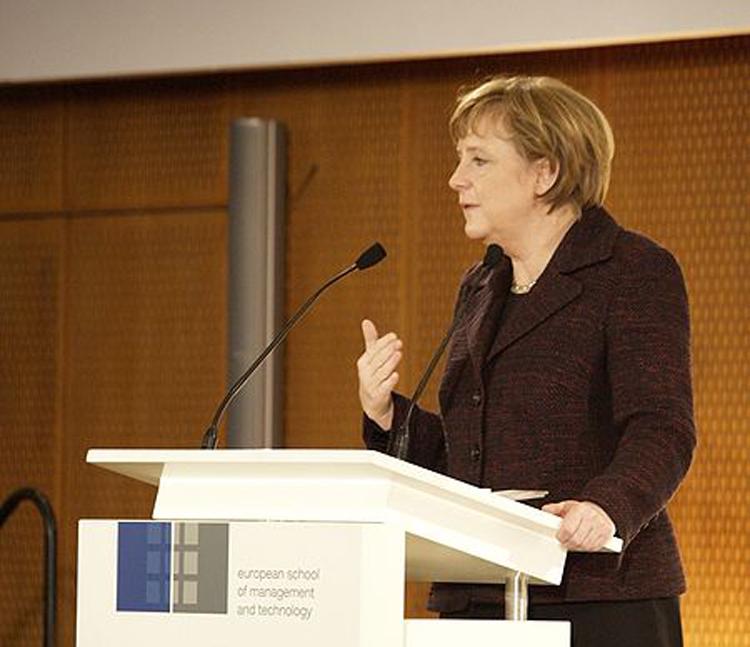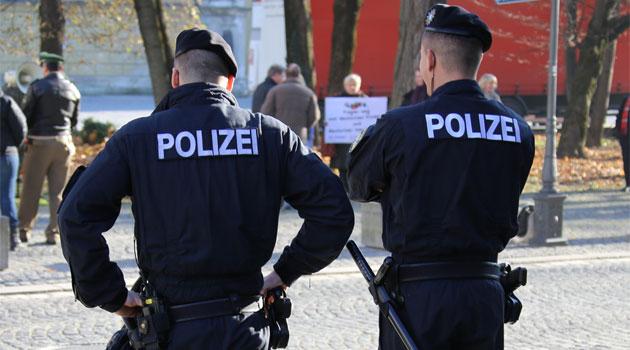German Chancellor still believes her country can handle the impacts of attacks and immigration

German Chancellor Angela Merkel remains convinced that Germany can deal with the impacts of the current terrorist attacks and of immigration. Speaking at a press conference yesterday, she promised that Berlin will do all it can to apprehend the people responsible for last week’s attacks.
The Chancellor also assured the public that Germany is not at war with the religion of Islam. She said she is disappointed that the European Union, in her opinion, is not doing enough with respect to the migration crisis.
Merkel first said “We can handle it” last August in connection with the growing number of migrants arriving into Germany. She has repeated that assurance several times during the course of the migration crisis.
“Today I am convinced, just as I was then, that we can deal with this, that we are undergoing an historic test during the era of globalization. We can handle it,” she said yesterday.
“We have already mastered a great deal over the past 11 months,” the Chancellor said. She condemned last week’s attacks in Ansbach and Würzburg, calling them cases of Islamist terrorism.
Merkel said the terrorists want to deprive the West of its freedom and way of life. She also said she believes the terrorists want to sow hatred between cultures and religions in order to reduce Germany’s willingness to aid people in adversity.
We are not at war
The chancellor said Germany is combating the terrorist organization Islamic State (IS) and other terrorist groups. “We are not, however, at war, nor are we combating Islam,” she emphasized.
At the same time, Merkel reminded those present of her Government’s previous statements that it expects Muslim spiritual leaders to more thoroughly condemn terrorist acts whose perpetrators use Islam as a pretext for their actions. The traditional summer press conference also included positive statements about the collaboration between EU Member States on protecting the EU’s external borders.
The Chancellor praised recent enhancements to the EU’s border agency, Frontex. She also said she believes it is necessary to secure the external EU border as soon as possible in order to make it possible to end the temporarily-introduced controls inside the Schengen area.
Nine-point plan
Merkel said she has a nine-point plan for ensuring greater security in Germany, based on her previous proposals. The plan includes an early warning sytem against radicalization; increasing the number of security forces; creating new security authorities; joint anti-terrorism exercises between the Army and Police; expanding research into the causes of Islamist terrorism and the circumstances around it with respect to prevention; interconnection of security databases at EU level; a new EU directive on weapons that includes combating the online arms trade; greater collaboration among secret services; and the deportation of asylum-seekers whose claims have been rejected.
Merkel says EU not doing enough on the migration crisis
The Chancellor said she does not believe the European Union is doing enough to address the refugee crisis. She told the press conference she is disappointed that only several thousand refugees have managed to be redistributed among the Member States.
She did say it was positive that all of the Member States have agreed to beef up protection of the EU’s external border. She also said she believes the EU is not doing enough to receive refugees from Syria, especially in comparison with how many have arrived in Jordan, Lebanon, and Turkey.
Moreover, according to the Chancellor, the redistribution of refugees is not working so as to help all of the EU Member States equally bear the burden of the migration crisis. “I am disappointed that in some [Member States] there is not enough willingness to do something here,” she said.
Merkel did say she was glad the Member States have agreed to beef up Frontex. She also expressed appreciation for Poland’s willingness to join the mission against those smuggling refugees on the Aegean Sea and appreciation of another Eastern European country, which she did not name, for its efforts to directly aid in addressing the causes behind refugees fleeing crisis regions.
The Chancellor expressed the conviction that it is necessary to ensure, as quickly as possible, sufficient protection for the EU’s external borders so it will be possible to end the checks now underway at borders inside the Schengen area. She said she also hopes for rapid renewal of the rules of the Dublin Convention, according to which the EU Member State in which a refugee first arrives must be the one to deal with that asylum application.
The results of a survey by the Emnid company for the German television station N24 that were published yesterday show that 57 % of Germans disagree with Merkel on the refugee crisis. The poll marks the first time those opposed to the Chancellor’s measures were found to comprise more than half of German society.
Merkel’s policy prompts strong dislike even within her own conservative political alliance of the CDU/CSU, with 42 % of such voters disagreeing with her approach toward migration. Despite these findings, her political position has long been a strong one.
A total of 59 % of Germans assess her work as Chancellor positively, with the most recent such results achieved last September. Those are the findings of a July poll by the Infratest dimap company for the ARD television station and the daily Die Welt, which found that compared to June of this year, Merkel’s favorable ratings had risen nine percentage points.
Merkel supports the TTIP as important for the EU and Germany
The German Chancellor continues to support the conclusion of a treaty on free trade between the European Union and the United states of America. The agreement, known as the Transatlantic Trade and Investment Partnership (TTIP) is, according to Merkel, important for the EU and Germany.
“I consider this agreement to be absolutely correct and important,” she said. In her view, it is logical for the two biggest economic blocs in the world to set
standards for a mutual trade agreement that will, among other things, ensure employee security.
Germany is one of the EU Member States in which dislike of the TTIP is strongest. Critics of the agreement are especially concerned about the opening of the EU market to genetically modified foods or reduced consumer protection standards.
